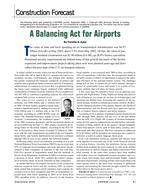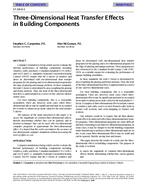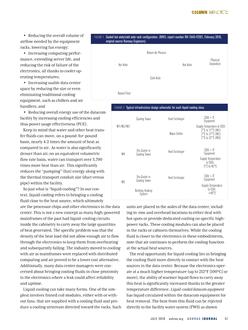The air velocities from a 60 in (1.5 m) diameter ceiling fan were measured when the fan was below a 20 ft (6 .1 m) x 20 ft (6 .1 m) ceiling and without a ceiling at heights of 20 ft (6.1 m), 30 ft (9.2 m), 40 ft (12.2 m), and 50 ft (15.3 m) above the floor. Measurements were made at sensor heights of 4 in (10.2 cm), 24 in (61 cm), 43 in (109 .2 cm) and 67 in (170 .2 cm) above the floor directly below the hub of the fan and at eight additional radii, 2 .5 ft (0.8 m), 5 ft (1.5 m), 10 ft (3.1m) 15 ft (4.6 m), 20 ft (6.1 m), 30 ft (9.2 m), 40 ft (12.2 m), and 50 ft (15.3 m) from the hub. Twenty-six measurements (one every 15 seconds) were recorded at each of the 288 collection points (2 ceiling conditions x 4 fan heights x 4 sensor heights x 9 radii) yielding 7,488 total measures . The results showed that (1) 10 measures per location were sufficient ; (2) the velocities with or without the ceiling were the same ; (3) fan heights of 20 ft (6.1 m), 35 ft (10.7 m) and 50 ft (15.3 m) should be used ; (4) the sensors should be placed at 4 in (10 .2 cm), 43 in (109 .2 cm) and 67 in (170.2 cm) at radii of 0, 2 .5 ft (0 .8 m), 5 ft (1 .5 m), 10 ft (3 .1 m), 15 ft (4 .6 m), 20 ft (6 .1 m), and 30 ft (9 .2 m) . In addition, the air velocities diminished very rapidly beyond 20 ft (6.1 m) from the hub of the fan.
Units: Dual
Citation: ASHRAE Transactions, 1986, vol. 92, pt. 1A, San Francisco
Product Details
- Published:
- 1986
- Number of Pages:
- 18
- File Size:
- 1 file , 4.8 MB
- Product Code(s):
- D-SF-86-2953


